Windows and doors that will last long after you've sold the house
uPVC windows and doors, constructed from weather-proof material specifically designed for Australian climates, exemplify sustainability and durability in modern building materials. This special formulation effectively resists intense UV radiation, preventing discolouration, distortion, and shrinkage, even in extreme heat and high-UV environments. Their resistance to rotting and corrosion, combined with high-impact strength, ensures they stand the test of time, making them a sound investment for new homes, renovations, commercial projects, and offices alike.
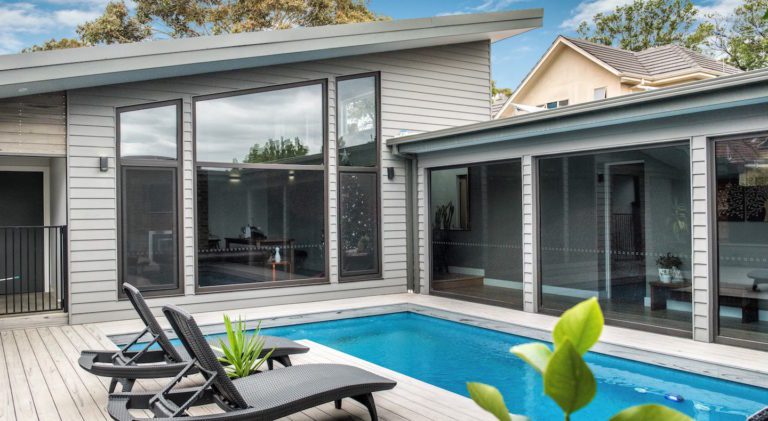
Durability Features
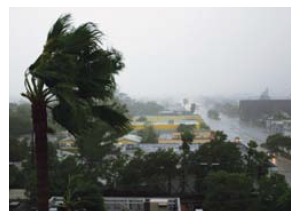
High Wind Load Performance
The wind load capacities of these uPVC window systems have been verified at a range of 3500 – 6300 PA (tested in accordance with GB/T7106-2002 and at estimated windspeeds of 270 – 380 km/h). Our doors and windows are built to withstand the gustiest wind conditions, which makes them an ideal choice in high-rises and coastal areas.
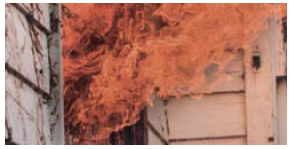
Self Extinguishing
uPVC is classified as a high-impact fire resistant material. It is notably difficult to ignite and will self-extinguish when the source of heat is removed. BAL Rating (Bushfire Attack Level) of our uPVC windows and doors are compliant to BAL Rating 29.
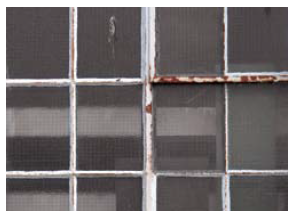
No Rotting, No Corrosion, No Painting
Unlike other materials, uPVC profiles are rot-proof and resistant to atmospheric pollution, including a range of acids and alkalis. This also means they will never rot unlike wooden frames over time.
Maintenance Features
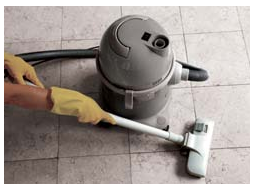
Dust Proofing
The gaskets sealing these uPVC windows and doors are calibrated to achieve excellent air tightness of less than 0.1 m3 /hr/m2 @ 10 PA (tested in accordance with GB/T7107-2002). This effectively stops dust drifting in from the outside, which drastically reduces the time you’ll need to spend cleaning your home.
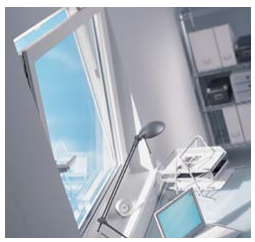
Fuss-Free Maintenance
It takes only half as much time to clean tilt-and-turn windows, as their openings allow you to swipe both sides at the same time. Being made of exceptionally durable uPVC, these windows are extremely resistant to pollution, diluted acids and alkalis. No special maintenance regime beyond the use of appropriate standard household cleaners is required. Our uPVC windows and doors are virtually guaranteed to help you save time and money over the long term.
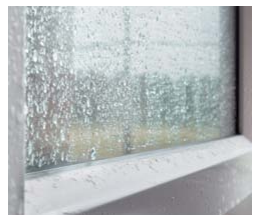
Water Tightness
Our windows and doors incorporate an 8mm overlap between the frame and sash, as well as dual compression gaskets, to prevent both dust penetration and water infiltration. They boast a proven water tightness of at least 2 litres/ min/m2 @ 700 Pa (tested in accordance with GB/ T7108-2002). So your home stays dry however heavily it might be raining outside.
Benefits of uPVC Windows & Doors
Energy Efficient
With up to 40% of a home’s energy for cooling or heating being lost or gained through windows, improving its thermal performance is necessary to reduce energy costs.
Noise Reduction
Sustainability & Durability
Manufactured with special protection against discolouring, distortion & shrinkage of our uPVC windows and doors.
The Aluplast Advantage
VUE Windows offers the strength, engineering and assurance of Aluplast, a world-leading brand of uPVC window & door solutions.



FAQ’s
How do uPVC windows and doors perform in bushfire-prone areas?
uPVC windows and doors are suitable for bushfire-prone areas, especially when they comply with BAL-40 standards. According to Australian standards, windows should have toughened safety glass of at least 6mm thickness, metal frames, and metal screens to prevent ember ingress. uPVC Doors should also comply with similar standards.
Are uPVC windows and doors energy efficient?
Yes, uPVC windows and doors are highly energy efficient. They can have double or triple glazing for enhanced insulation, and the air-tight seals reduce heat transfer and drafts. Many uPVC windows and doors in Australia are rated under the Window Energy Rating Scheme (WERS), which aligns with the National Construction Code for energy efficiency.
What are the Australian standards for uPVC windows and doors?
All windows and glass in Australian homes must comply with AS2047 for windows in buildings and AS1288 for glass in buildings. These standards ensure quality and structural integrity, covering aspects like wind load deflection, operating force, air infiltration, water penetration, and ultimate strength.
Are uPVC windows and doors environmentally friendly?
uPVC windows and doors are fully recyclable and can be repurposed without a reduction in quality. Their energy-efficient design minimises heat loss and heat gain, resulting in lower energy usage and a smaller environmental footprint.
Do uPVC windows and doors offer soundproofing benefits?
uPVC windows and doors offer excellent sound insulation, especially when they are double or triple-glazed. The multiple layers of glass with inert gas in between create a barrier to sound, and the tight seals further enhance noise reduction, making them ideal for urban or noisy environments.
 MAKE AN ENQUIRY
MAKE AN ENQUIRY
 CALL US
CALL US


